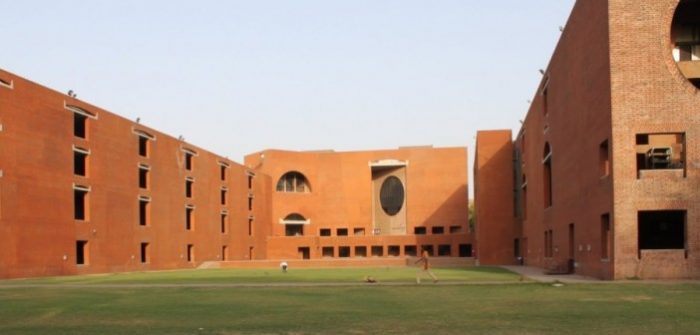The two-year full-time Post-Graduate Program in Management (PGP) at Indian Institute of Management Ahmedabad (IIMA), is rated as the toughest MBA program in the world to get admission. Considering the burgeoning demand, the institute is planning to increase the student intake.
According to IIMA Director Ashish Nanda, a proposal has been sent to the Ministry of Human Resource Development (MHRD) seeking approval for capacity expansion as well as funding.
He says while a proposal has been sent to the Ministry along with a request for capital support for expansion, the exact numbers and dates are not important at this stage.
Meanwhile, sources say the PGP program could have as many as 400 participants. MHRD is likely to hold a meeting with IIM directors in October to consider the issue.
IIMA has stated that the main objective of PGP, its flagship program, is to “develop young men and women into competent professional managers, capable of working in any sector of organized activity, proceeding leadership and achieving excellence in performance while contributing to the welfare of the larger society.
It specifically attempts to equip students with the required conceptual and interpersonal skills and sense of social purpose for managerial decision-making. They are to develop leadership capabilities to act as change agents and be a source of motivation in the organizations they work in.
The program is to nurture in the participants, a desire to excel in performance without compromising integrity, honesty and fairness.
The PGP curriculum, according to IIMA, is the result of constant innovation and continuous review by the faculty with help from practitioners in industry, alumni and students. The program has four types of courses spread across two years, namely, foundational, tools and techniques oriented, functional and perspective-building courses. It also provides opportunities for project courses and courses of independent study during the second year.
The compulsory/ core courses focus on rigorous grounding in the rudiments of every discipline in management and the development of a common foundation of business knowledge and management theory. The core courses consist of 515 sessions encompassing 25.75 credits. In the first year, 445 sessions of core courses are offered and 70 sessions are offered in the second year.
Following the first year programme, students undertake summer training with Institute’s corporate partners for a period of eight to nine weeks. The Summer Internship is a powerful source of practical managerial insights, validation of management concepts, and valuable market knowledge.
The electives in the second year allow students to choose a bouquet of courses that interest them and develop proficiency in the areas of their choice. These comprise in-class courses, often with project components, offered by different areas, courses of independent study, exchange programmes and intensive field courses, totalling 15.50 – 18.50 credits (310-370 sessions) over six slots, each of which consists of 5 to 6 weeks’ duration. Each credit requires a minimum of 80 hours of work.
Among the types of courses, the Regular Course helps a student to learn tools, techniques, skills and concepts primarily through class discussions. The Seminar Course has a specified number of class sessions and time for research to explore the frontiers of knowledge.
Projects are designed to suit individual student needs. There are four categories of projects– Independent Project, Project Course, Course of Independent Study, and Comprehensive Project.
An Independent Project provides an opportunity to apply the tools, techniques, skills and concepts, which a student may have already learnt, to the study of actual problems through field studies, computer based analysis and library research.
Students can do independent projects (IP) (Non Credit) for up to one per set of two slots. These can be undertaken only with the prior permission of the instructor concerned. The project proposals, duly approved by the guide should be submitted to the PGP Office before the start of slot IX and XI. The IPs would not be taken into account towards meeting the credit requirements in second year and their grades would not be accounted in GPA calculation.
The Course of Independent Study (CIS) (2.5 credits) allows exploration of a topic in the student’s “area” of interest. It makes possible the integration of several fields of study in searching for the solution to a single problem.
It provides valuable experience in the research process such as definition of the problem, search for relevant data, analysis of the data and drawing conclusions. Thus CIS allows for individual initiative, judgment and resourcefulness well beyond what is possible in the regular curriculum.
The Comprehensive Project (CP) provides an opportunity to learn in a real world context. This provides a vehicle for integration of learning across functions and disciplines. The project must be organization-based, not based entirely on secondary data or library work. It must be multifunctional and multidisciplinary in nature.




